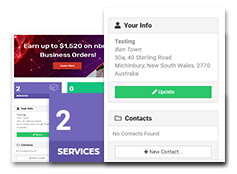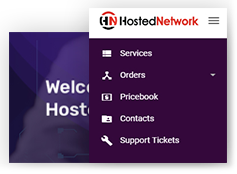In our previous blog, we’ve talked about tips on how to master MSP leadership and delegation. This time, we’ll tackle another area related to it – improving team effectiveness.
Defining outcomes and outputs
Outcomes and outputs are often interchanged but these terms are completely different. Outputs are the building blocks for successful outcomes, while outcomes are proof that your outputs are giving you the results that you want.
Outputs are tangible, short term results like a completed report, a closed ticket, a successful training or certification.
Outcomes are long-term results that focus on value like low turnover rate or good feedback both from internal team and customers. Outcomes are often measured in terms of efficiency (Ability to accomplish something without wasting resources),efficacy (Capacity to perform or accomplish a task) and effectiveness (Ability to deliver intended or expected result).
Shifting from output mindset to outcome mindset
Over the past few years, organisations learned to adapt flexible work arrangements. This led to disruptions in all forms especially in monitoring team performance.
If you’re used to determining your team’s individual activities or focusing on outputs, here’s why shifting to outcome mindset will benefit your MSP in the long run:
Never lose track of the goal
Start with the end in mind. Begin by visioning a successfully completed outcome and thinking of the outputs required to get there. Whether you’d like to enhance your customer service or boost employee morale, think of your ultimate goal and work out the steps in reverse.
With clear outcomes, you’re establishing expectations from your team and ensuring that no one gets sidetracked and disconnected. More importantly, this will help your team focus on strategies that work and give the greatest impact to your outcomes.
Assign the right people, get better outcomes
Being outcome-oriented allows you to determine individual and team effectiveness. The quality of output your employees produce will show if you have assigned the right people to the right seat. The sooner you know this the better.
Staff audits provide a clear understanding of your team’s overall performance and help you identify the people that are underperforming or simply not fit for the task. It’s not that they are not excellent employees but some people may not just be the right one for a role and this can affect their performance and evaluation. Doing this will help you reorganise your team efficiently and deliver better results.
Reduce staff disengagement
A consistent decline in your team performance can be brought by a lot of factors. One of these is disengagement. This happens when you don’t consistently communicate with your team.
Often, when you don’t let your team be involved and know the bigger picture, they lose interest. Questions like “Am I really an essential part of this organisation?”or “Is there a future for me here?” affect their work quality and performance, delivering poor results.
You should effectively communicate your intended outcome to your staff and their corresponding role on how to achieve it. It’s not enough that you, the leader, have an outcomes mindset, everyone in the team should think the same way. In this way, you’re all on the same page and motivated to work together towards the same goal.
Prevent wasting resources
Simply put, it’s easier to create plans on how to achieve outputs when you have clear outcomes in the beginning. To save resources and avoid the frustrations brought by trial and error, don’t dive head first into something without proper planning and clear vision.
It’s way easier to perform tasks when you’re on the right track and role from the very beginning. This just saves everyone time and energy, and especially for MSP owners, operational costs.
Managing MSP teams isn’t easy, we know that, ‘cause we’ve been there! But we’re here to help. If you’d like to get more tips for efficient MSP team management, watch our webinars on demand below:
MSP Workforce Management: Is it time to Hire, Fire or Train your Staff?
 Contact us
Contact us  Partner Login
Partner Login  Service Status
Service Status 


 July 14, 2022
July 14, 2022
 Madeleane Abejero
Madeleane Abejero
 2 mins
2 mins